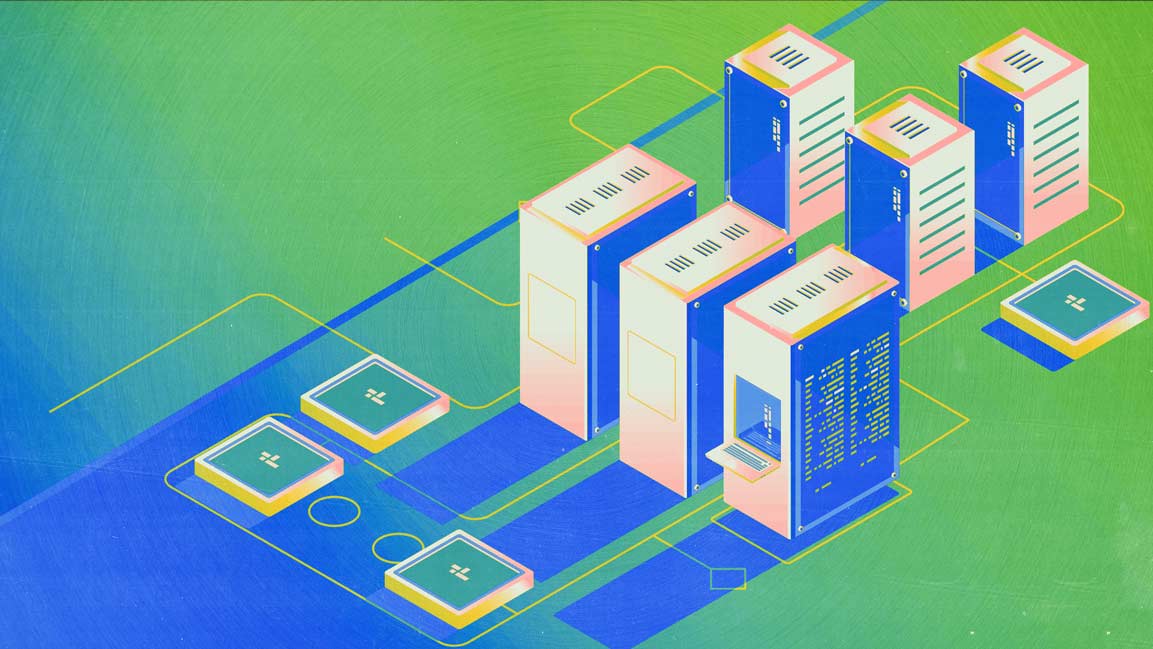UAE Dominates Global Data Centre Rankings as Region Becomes Digital Infrastructure Hotspot
As global competition for energy access grows, the Middle East is standing out as a favourable environment for data centre development.
Topics
News
- Dubai Chamber of Digital Economy Partners With Canva to Set Up Regional HQ
- Apple Puts Virtual Health Coach On Hold Amid Tough Competition
- Alphabet Remains Cautious On Apple Deal, Dodges Investor Question
- HBKU and QRDI Enter Partnership to Advance National Tech Capabilities
- UAE Families Expect AI to Redefine How They Live, Bond, and Raise Children
- Alphabet Pitches AI as Core Growth Engine in Post-Earnings Call

[Image source: Chetan Jha/MITSMR Middle East]
As the global race to build next-generation digital infrastructure intensifies, the Middle East, led by the UAE, is rapidly emerging as an epicenter for data centre development. With strategic investments in renewable energy, power transmission, and hyperscale-ready infrastructure, the UAE is positioning itself as a premier global destination for cloud, AI, and edge computing.
The UAE is making major strides in the global data centre industry, with Abu Dhabi and Dubai securing the top two positions in Cushman & Wakefield’s Global Data Centre Market Comparison 2025. This recognition places the nation at the forefront of one of the fastest-growing sectors in the digital economy.
While traditional data centre markets face increasing pressure from power constraints, the UAE is differentiating itself by actively investing in renewable energy and modernising its power infrastructure. The Dubai Electricity & Water Authority (DEWA), for example, is capable of delivering 150 kW connections to commercial and industrial sites in under five days. Major national initiatives—such as Masdar and Emirates Water and Electricity Company’s (EWEC) 1 GW baseload renewables project and TAQA’s $10.9 billion transmission upgrade—reflect the country’s commitment to ensuring reliable, sustainable power for hyperscale demand.
As global competition for energy access grows, the Middle East is standing out as a favourable environment for data centre development. Both Dubai and Riyadh are attracting considerable interest due to their competitive land and power availability. Preleasing rates above 70% in both cities highlight strong demand from hyperscalers and enterprises. The region’s ability to combine this demand with comparatively better access to infrastructure makes it a compelling destination for the next wave of global data centre investments.
Currently, the UAE has over 250 MW of live data centre capacity, with another 500 MW under development. Abu Dhabi alone represents roughly 40% of this pipeline, with 150 MW expected to come online by the end of 2025. By 2027, over $1.5 billion in further investment is anticipated, much of it driven by demand for cloud and AI workloads.
Leading global and regional players including AWS, Alibaba, Equinix, and Khazna Data Centers, which control over 50% of the local market and continue to reinforce the ecosystem. Enterprises such as Emirates Group are also embracing green infrastructure, migrating to solar-powered facilities at the Mohammed bin Rashid Solar Park.
Investment momentum is also being driven by sovereign and institutional capital. A $25 billion fund from ADQ and Energy Capital Partners is targeting power infrastructure, while a $30 billion AI-focused consortium involving MGX, Microsoft, and BlackRock is laying the foundation for future-ready platforms. A standout project is Stargate UAE, backed by G42, OpenAI, Oracle, Nvidia, and Cisco, which aims to deliver 1 GW of capacity in its first phase scaling up to 5 GW by 2026.
With Abu Dhabi also ranked number one globally for fibre connectivity, the UAE is building a digital infrastructure that is not only growing rapidly but also leading in performance. The combination of high-speed, low-latency connectivity paired with favourable power economics and fast-track permitting makes the region a strategic launchpad for next-generation cloud, AI, and edge deployments.








